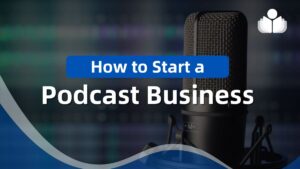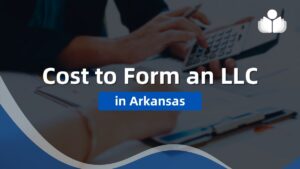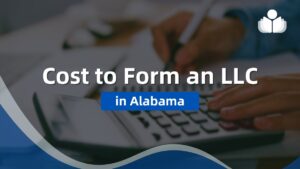© Copyright Carter McNamara, MBA, PhD, Authenticity Consulting, LLC.
The following terms are described in this document.
- Information
- Knowledge
- Skills
- Abilities
- Perceptions
- Task
- Job
- Role
- Learning
- Continuous Learning
- Training
- Education
- Development
- Additional Information
Also consider
Learn More in the Library’s Blogs Related to Terms in Training and Development
In addition to the articles on this current page, also see the following blogs that have posts related to Terms in Training and Development. Scan down the blog’s page to see various posts. Also, see the section “Recent Blog Posts” in the sidebar of the blog or click on “Next” near the bottom of a post in the blog. The blog also links to numerous free related resources.
- Library’s Career Management Blog
- Library’s Human Resources Blog
- Library’s Leadership Blog
- Library’s Supervision Blog
- Library’s Training and Development Blog
Basic Terms and Definitions
Note that trainers, developers and educators vary among their own definitions of the following terms, as you can see in glossary of terms
Information
At its most basic form, a piece of information about something is a “unit of awareness” about that thing. (A field of philosophy, epistemology, includes analysis of what is really information and what isn’t. This field might visit the question: “If a tree falls in the forest, does it make a sound?”) Some people think that this awareness occurs only in the brain and, therefore, usually comes from some form of thought. Other
people also accept information as a form of realization from other forms of inquiry, e.g., intuition.
Knowledge
Knowledge is gleaned by organizing information. Typically, information evolves to knowledge by the learner’s gaining context, perspective and scope about the information.
Skills
Skills are applying knowledge in an effective and efficient manner to get something done. One notices skills in an employee by their behaviors.
Abilities
Abilities result from applying the skills to the extent that the applications become natural or intuitive to do.
Perceptions
Perceptions are a way of interpreting or coming to understand something. When people are stuck in solving a problem, it is often because they are stuck in how they see the situation.
Task
A task is a typically defined as a unit of work, that is, a set of activities needed to produce some result, e.g., vacuuming carpet, writing a memo, sorting the mail, etc. Complex positions in the organization may include a large number of tasks, which are sometimes referred to as functions.
Job
A job is a collection of tasks and responsibilities that an employee is responsible to conduct. Jobs have titles.
Role
A role is the set of responsibilities or expected results associated with a job. A job usually includes several roles.
Learning
Typically, learning is viewed as enhancing one’s knowledge, understanding or skills. Some people see learning as enhancement to one’s knowledge, awareness and skills. Some professionals view learning as enhancing one’s capacity to perform. Some view learning as a way of being that includes strong value on receiving feedback and increasing understanding. It’s important to note that learning is more than collecting information — more than collecting unreferenced books on a shelf. Depending on the needs of the learner, knowledge is converted to skills, that is, the learner knows how to apply the knowledge to get something done. Ideally, the skills are applied to the most appropriate tasks and practices in the organization, thereby producing performance — results needed by the organization. Here’s another perspective.
Continuous Learning
Simply put, continuous learning is the ability to learn to learn. Learning need not be a linear event where a learner goes to a formal learning program, gains areas of knowledge and skills about a process, and then the learning ceases. If the learner can view life (including work) as a “learning program”, then the learner can continue to learn from almost everything in life. As a result, the learner continues to expand his or her capacity for living, including working. (See How Many Steps to Continuous Learning? None.)
Training
This term is often interpreted as the activity when an expert and learner work together to effectively transfer information from the expert to the learner (to enhance a learner’s knowledge, attitudes or skills) so the learner can better perform a current task or job. Here’s another perspective.
Education
This term seems to be the most general of the key terms in employee training. Some professionals view education as accomplishing a personal context and understanding of the world, so that one’s life and work are substantially enhanced, e.g., “Go get an education.” Others view the term as the learning required to accomplish a new task or job. Here’s another perspective.
Development
This term is often viewed as a broad, ongoing multi-faceted set of activities (training activities among them) to bring someone or an organization up to another threshold of performance. This development often includes a wide variety of methods, e.g., orienting about a role, training in a wide variety of areas, ongoing training on the job, coaching, mentoring and forms of self-development. Some view development as a life-long goal and experience. Here’s another perspective.
Additional Information
- What’s What
- What’s the Difference Between Learning and Training?
- Training and Development: Differences and Priorities
- Training Definitions and Terms
Learn More in the Library’s Blogs Related to this Topic
In addition to the articles on this current page, also see the following blogs that have posts related to this topic. Scan down the blog’s page to see various posts. Also, see the section “Recent Blog Posts” in the sidebar of the blog or click on “Next” near the bottom of a post in the blog. The blog also links to numerous free related resources.
- Library’s Career Management Blog
- Library’s Human Resources Blog
- Library’s Leadership Blog
- Library’s Supervision Blog
- Library’s Training and Development Blog
Go to the main Training and Development page.
For the Category of Training and Development:
To round out your knowledge of this Library topic, you may want to review some related topics, available from the link below. Each of the related topics includes free, online resources.
Also, scan the Recommended Books listed below. They have been selected for their relevance and highly practical nature.
 Sections of this topic
Sections of this topic
















